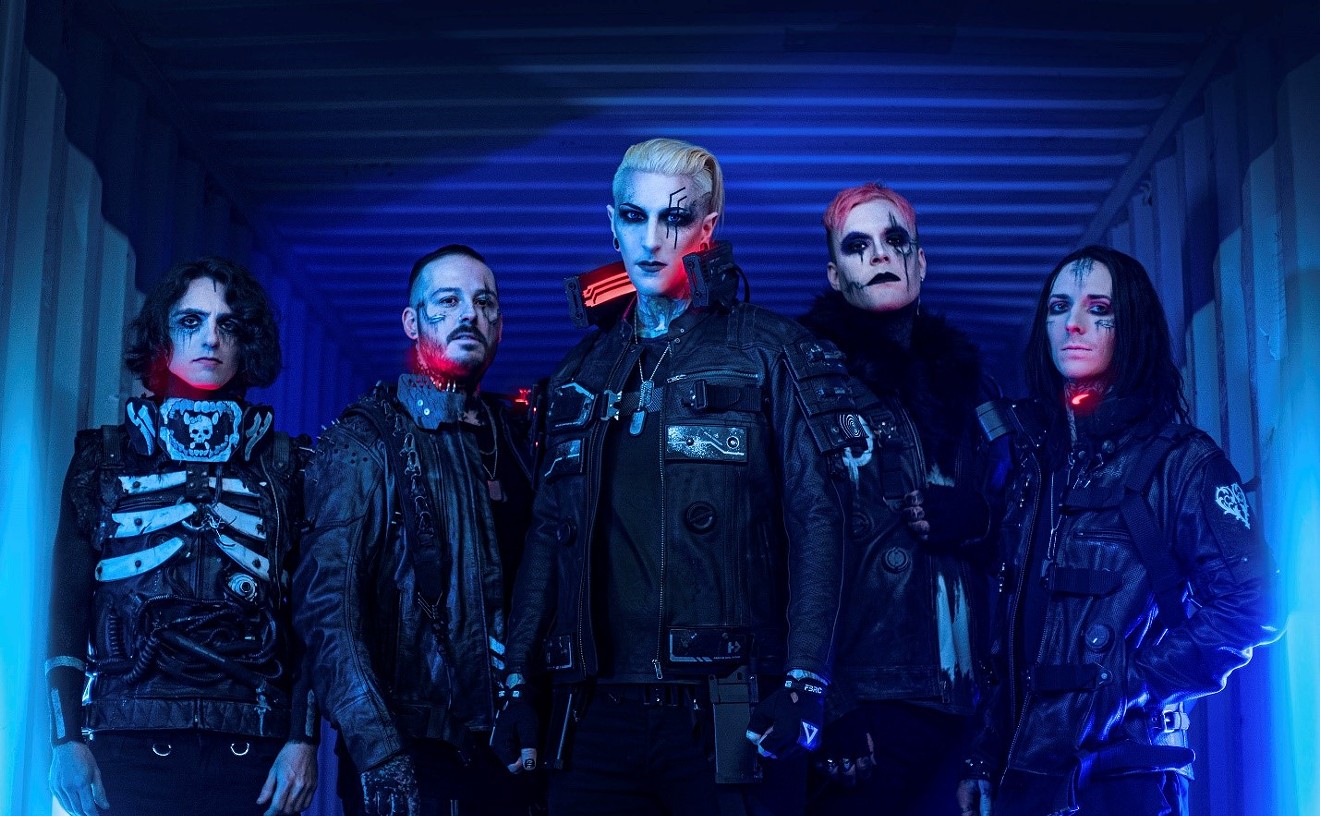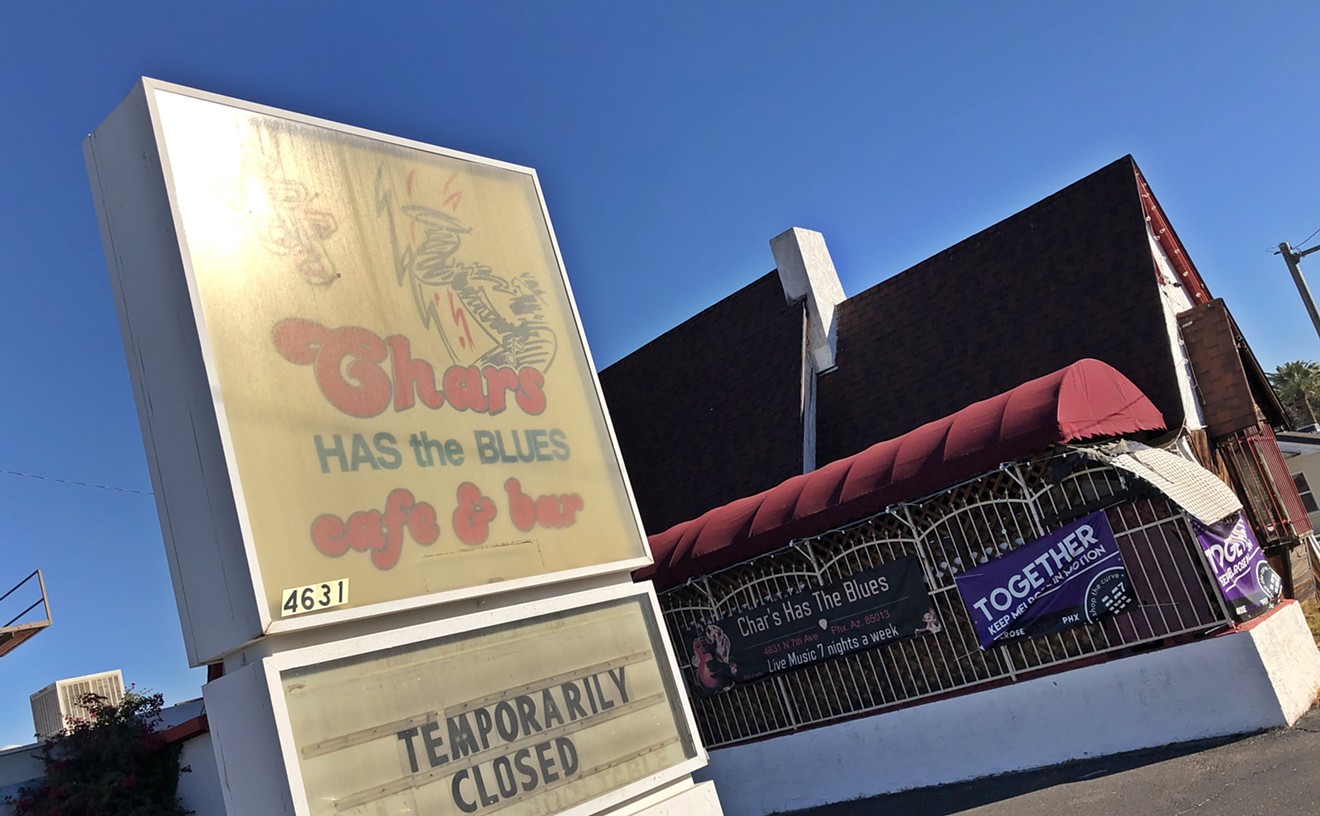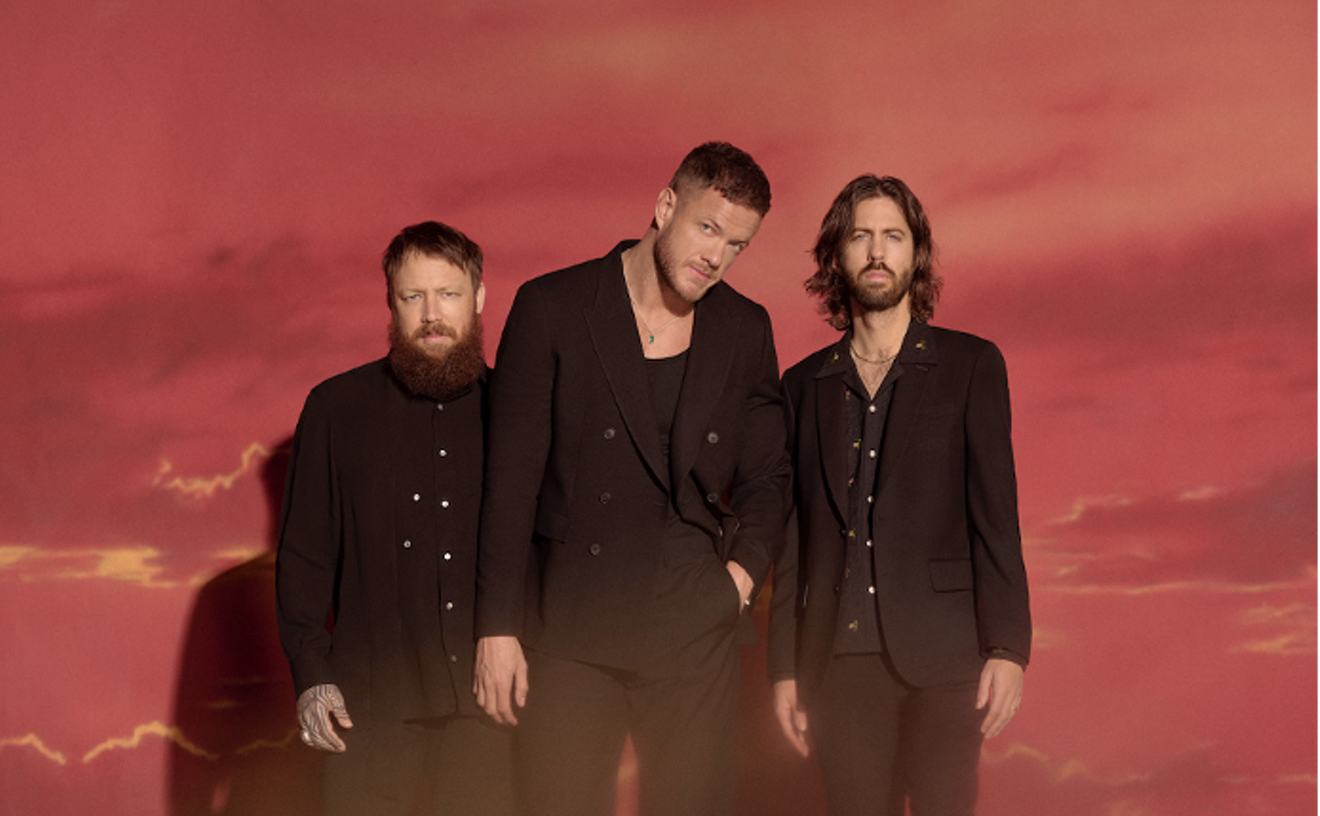"I didn't get into music to be part of an exhibit or some kind of freak show," snorts guitarist Jimi Hazel in a recent phone interview. "This isn't a display of `See, we black people can do this, too.' This is a musical thing; it's a colorless thing."
Those kind of apolitical sentiments are in direct contrast to the militant preachings of the band the Spyz supposedly emulate, Living Colour. As you might remember, Living Colour guitarist Vernon Reid co-founded the Black Rock Coalition--or the Brooklyn Black Mafia, as its detractors have tagged it--to break down the racial stereotypes he felt existed in rock 'n' roll and many other areas of the arts. The Spyz were also members of the coalition, that is until they began butting heads with the rest of the B.R.C. over their "irresponsible lyrics." Unlike Living Colour, which kept the lyrics on its platinum-certified LP Vivid as upright and responsible as any Christian rock band, the Spyz weren't afraid to throw a smut-fest like "Spyz Dope" onto their debut album, Harder Than You. "That's really the only song where we get cutthroat and raunchy," assures bassist Rick Skatore.
Songs like "Spyz Dope" and the band's lewd revamp of the Commodores' disco classic, "Brick House" (not on the LP, but a concert fave) have managed to get the group in the deepest dutch with the more high-minded members of the Black Rock Coalition. Recently, the Spyz, fed up with their rep as the bad boys of the B.R.C., decided to drop out of the collective, which they felt had become close-minded--not to mention just plain uptight.
"Because of our raunchiness, and other things, they just weren't ready for us," reasons Skatore. "They were just breaking [down] their barriers there in New York, and we had already been doing that kind of thing before we had ever gotten involved with them. I don't think we were ever as serious, serious, serious as everybody in the coalition was. Everybody was depending on one another in the coalition to get themselves out there, but we were depending on the band."
In contrast to Living Colour and other bands in the coalition, the Spyz have never been interested in just purist rock 'n' roll. Harder Than You is a stylistic grab bag, filled with a Metallica-intensity guitar attack on "Grandma Dynamite," a play on the Red Hot Chili Peppers' pulverizing punk-funk on "Spill My Guts," and splashes of Fishbone's warped ska throughout. Hazel is also proud to admit being influenced by less-than-cutting-edge acts like Kool & The Gang, whose "Jungle Boogie" is given a flattering rap-metal makeover on Harder Than You.
The protest rap that's tacked on to "Jungle Boogie" is one of the fairly rare political outbursts on the LP. True, there's the Rasta-flavored "Ballots Not Bullets," which vividly details Haiti's bloody 1987 election, and "I Must Go On," a sympathetic--but not heroic--picture of a Vietnam grunt. Still, unlike other black activist bands, the politics always take a back seat to the grooves on the Spyz record.
"We don't try to make politics important," admits Hazel. "I mean, if you listen to our songs, you get the feeling that `Yeah, they are trying to tell us something.' But we just don't make it so blatant that it's like, `Here's the message--BAM!'"
Besides, claims Hazel, there are more than enough outspoken black artists out there without the Spyz getting in on all the self-indulgent grandstanding. Just one such pontificator, Public Enemy's Professor Griff, recently got loads of press with his anti-Semitic remarks. (Following a backlash over the statements, the rap group fired Griff, then disbanded, according to various reports.) Griff's offensive commentary, along with the heated polemics of cult director Spike Lee's latest flick, Do the Right Thing, which Public Enemy contributed music to, are making this summer a season of controversial black politics in the arts. While the Spyz aren't prone to overt message-making themselves, Hazel has no problem with the rantings of some of his more militant fellow black artists.
"If they want to get on a podium and state their views, that's cool," figures Hazel. "After all, everybody should have a chance to get the shit off."
Some would argue that the outrageous preachings of Professor Griff and the sleazy spiels of certain other rappers are just a means of getting attention in an industry that still often ignores black talent. Hazel acknowledges that black bands--specifically the handful of black rock acts out there--have to work twice as hard to get the notice garnered by their white peers.
"Unless it's got Spandex and blond hair that's starched out from here to eternity, it's just not talked about," bitches Hazel. "Black rock is usually only talked about as a novelty or a flavor-of-the-month kind of thing. Then it's like, `Oh, well, we'll see how long that lasts.' Sometimes when black bands don't feel they're being supported by the industry or media, they can't find the strength within themselves to pursue. And that's what's really sad.









